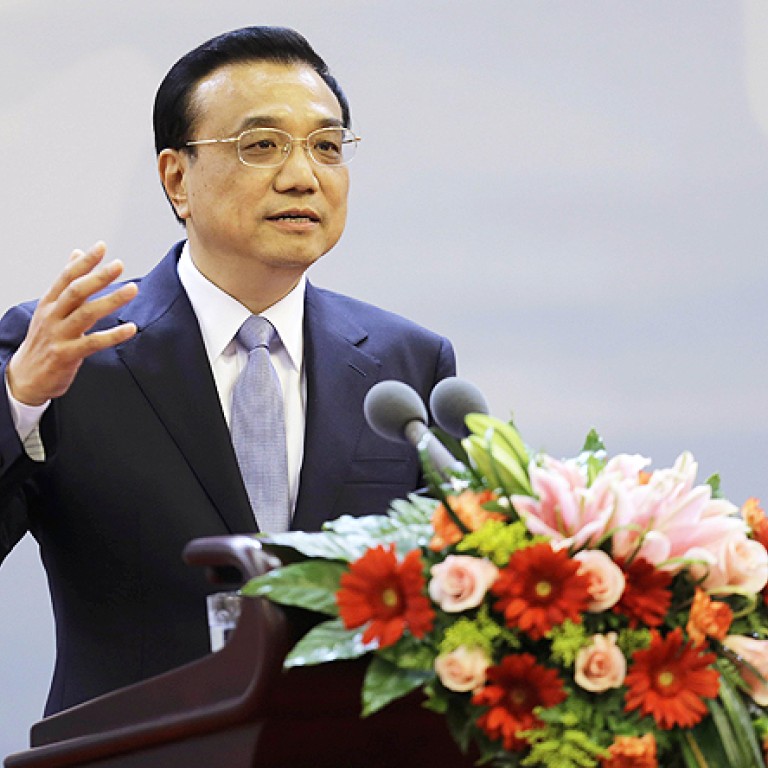
China’s economy to sustain ‘mid- to high-speed’ growth, says Li Keqiang
China’s economy will keep growing at mid- to high speed in coming years, Premier Li Keqiang said on Friday, promising to lead the world’s second-largest economy on a road of “comprehensive reform”.
Speaking to a group of Chinese and foreign business leaders, Li said China would further reform its government finances, financial markets and industry, among other areas.
“For several years in the future, China’s economy shall continue to grow at mid- to high speed,” Li said.
China’s maturing economy is set to grow at its slackest pace in 23 years this year, at 7.5 per cent, as its export sales falter on fragile global demand.
The government has said the slowdown has been partly engineered to make room for retooling the economy to ensure future growth is cleaner, more sustainable, less dependent on heavy investment and more reliant on consumption.
“We will comprehensively deepen reform,” Li said, adding that the areas mentioned were those that had drawn interest from the public.
His comments came as China’s leaders prepare to meet from November 9 to November 12 at key plenum that will discuss deepening reforms.
Known as the third plenum, it marks the third time that China’s 200-member Central Committee has gathered since last year’s leadership change. Such meetings have historically been a springboard for change.
No details have been given on what changes will be pursued and in what manner, although Yu Zhengsheng, the fourth-ranked member of China’s elite Communist Party Politburo Standing Committee, has said the plenum will unveil “unprecedented” reforms.
People familiar with discussions said last month, however, that of a long list of proposed changes, only financial reforms had garnered enough support to warrant a roadmap.
More controversial changes such as those tied to the fiscal system and land and residency registration have been major sticking points. Political reform is also not expected to be discussed much at the meeting.

